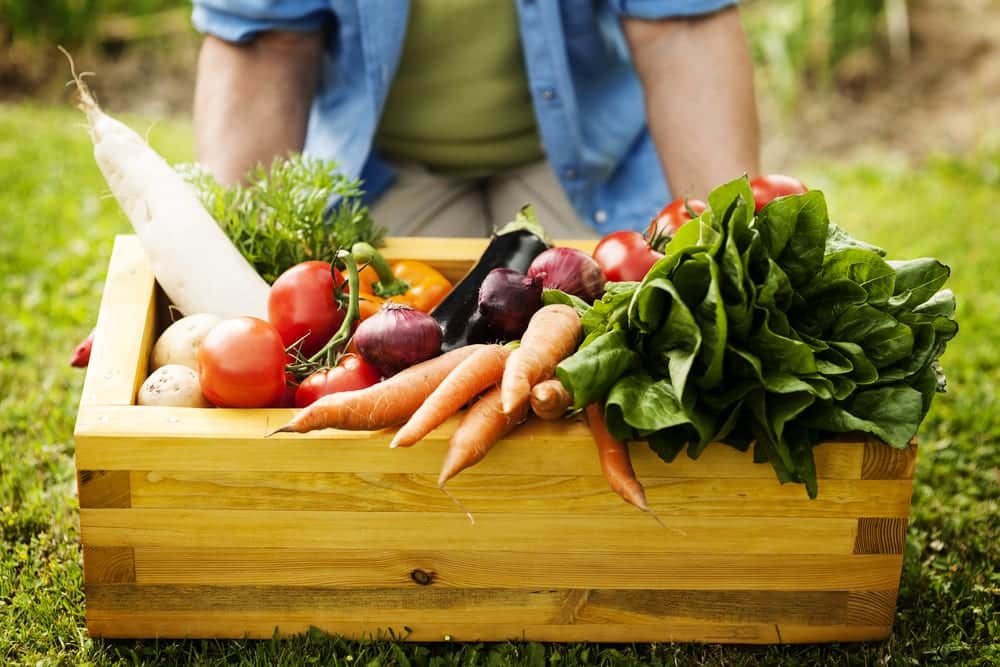One of the many wonderful things about spring and summer is that a wealth of fruits and vegetables are finally “in season.” Winter is a bleak time for fresh produce, but spring and summer usher in a variety of delicious, nutritious, and colorful fruits and vegetables. Not only is it cost effective and environmentally friendly to eat seasonal vegetables, but also they tend to taste a lot better. Yes, it can be hard to wait for the right season to dine on your favorite heirloom tomatoes and snap peas, but it’s undoubtedly worth it. The absence may even make your stomach grow fonder.
Seasonal Vegetables 101
Before we dig into our favorite seasonal vegetables, let’s discuss fruits. More specifically, let’s discuss fruits that are commonly mistaken for vegetables. This is a popular phenomenon that likely occurs because we think of fruits as being sweet in flavor. Fruits that don’t fit into this mold and better suit savory dishes are seen as “vegetables.” Some legumes are also considered vegetables. While we could be sticklers and only include true vegetables on our list, the distinction isn’t very important in an article like this one. So we’ll be including a variety of fruits and legumes masquerading as vegetables as well, including green beans, okra, bell peppers, peas, cucumbers, pumpkins, avocados, tomatoes, eggplants, corn, and zucchini.
Okay, now that that’s out of the way, let’s review which vegetables are “in season” in each of the four seasons:
Vegetables by Season
Spring
Artichokes, Asparagus, Avocados, Broccoli, Cabbage, Carrots, Celery, Collard Greens, Garlic, Kale, Lettuce, Mushrooms, Onions, Peas, Radishes, Spinach, Swiss Chard, Turnips
Summer
Avocados, Beets, Bell Peppers, Carrots, Celery, Corn, Cucumbers, Eggplant, Garlic, Green Beans, Okra, Summer Squash, Tomatillos, Tomatoes, Zucchini
Fall
Artichokes, Beets, Bell Peppers, Broccoli, Brussels Sprouts, Cabbage, Carrots, Cauliflower, Celery, Collard Greens, Garlic, Green Beans, Kale, Lettuce, Mushrooms, Onions, Parsnips, Peas, Potatoes, Pumpkins, Radishes, Rutabagas, Spinach, Sweet Potatoes, Swiss Chard, Turnips, Winter Squash
Winter
Beets, Brussels Sprouts, Cabbage, Carrots, Celery, Collard Greens, Kale, Leeks, Onions, Parsnips, Potatoes, Pumpkins, Rutabagas, Sweet Potatoes, Swiss Chard, Turnips, Winter Squash
Why Eat Seasonal Vegetables
In modern America, it’s possible to get many fruits and vegetables at the supermarket all year long. But just because something is available, that doesn’t mean you should buy it. Let’s look at a few reasons why it’s beneficial to eat seasonal produce, no matter what the season:
- It’s delicious. Have you ever eaten a tomato sandwich in July with tomatoes purchased from your local farmer’s market (or better yet, grown in your own garden)? Now think about what that sandwich would taste like with a tomato purchased at a supermarket in January. When produce is in season, it simply tastes better.
- It’s cost effective. When produce is in season, it’s more abundant and more accessible. When produce is out of season, it’s scarcer and requires more travel, time, and expenses to grow and sell. Due to basic supply and demand, seasonal produce is a better deal.
- It’s environmentally friendly. When you buy food that’s out of season and not local, it has to travel a long way (sometimes even from other countries) to reach your refrigerator. This requires a lot of fuel and creates a lot of pollution, which are both bad for the environment.
- It can help support your local economy. This depends on the source of the produce, of course, but if you purchase from a farmer’s market or a supermarket that takes care to purchase from local farmers, you can support your local economy while enjoying delicious, nutritious food.
- It makes these vegetables feel special. Would a fresh peach seem as special if you could get it all year round? Would you look forward to corn on the cob in the same way if you could eat it in the dead of winter? There’s something special about foods that are only at their peak for a limited time each year.
_____
I don’t know about you, but all this talk about seasonal vegetables has got my stomach rumbling. Fortunately, it’s now June – so maybe for dinner I’ll have asparagus risotto . . . or a BLT with heirloom tomatoes . . . a Greek salad with cucumbers and bell peppers . . . a kabob with zucchini and mushrooms . . . Mmm. Mmm. To find fresh, local, seasonal produce near you, check out the USDA’s Local Food Directories.
Are you looking for a premier assisted living and memory care community in the heart of downtown Greenville, South Carolina? Come visit us at Waterstone on Augusta. Our community is both relaxing and elegant, and we strive to enhance the quality of life of the seniors we serve through teamwork and unity. To learn more about our amenities and to view our lovely community, please schedule a tour online or call us today at 864-605-7236.

